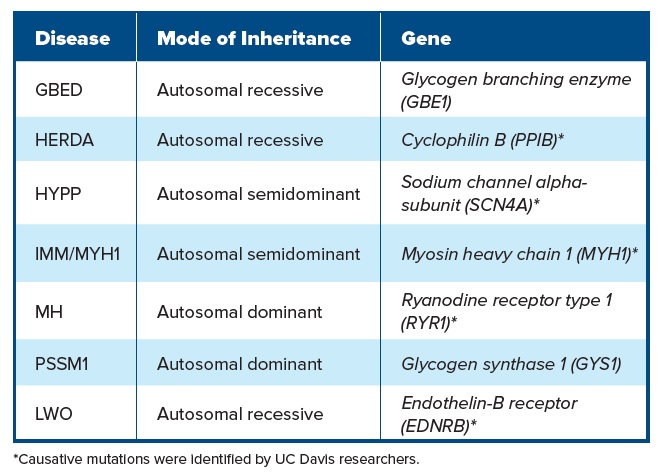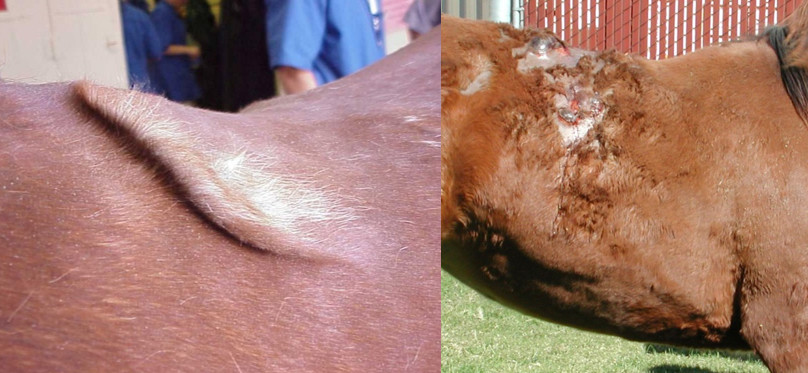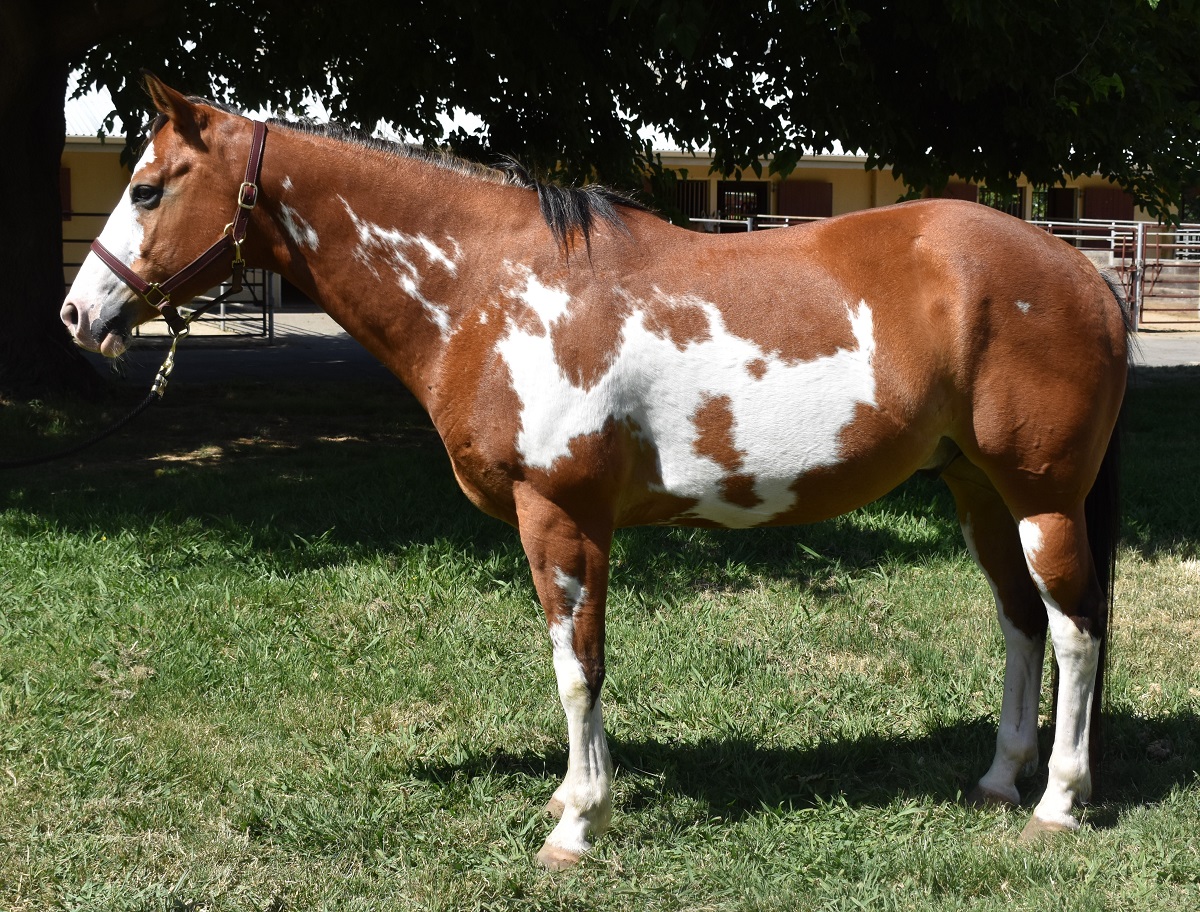High Five - AQHA's Dedication to Research and Success of the "Five-Panel Test"
Genetic diseases can cause significant emotional and financial stress for owners and breeders. The American Quarter Horse Association (AQHA) is committed to educating owners and breeders about inherited conditions so they can make informed breeding decisions. The American Quarter Horse Foundation (AQHF) provides funding for a wide range of research projects, granting more than $12 million in support of equine research to date. Genetics research accounts for 20% of that total, with 53 projects funded at 12 universities.
As part of this focus on genetics, AQHA supports genetic testing as an important mechanism to ensure the future health of the breed. The “five-panel test” evaluates a horse for five known inherited diseases, ranging from mild to severe, and for which producing an affected foal may result in unnecessary suffering and financial losses. The AQHA requires testing for breeding stallions, and many breeders test both mares and stallions to make informed breeding decisions.
The “five-panel test” includes the following diseases:
Glycogen branching enzyme deficiency (GBED) – fatal disease of developing fetuses or newborn foals. Affected horses cannot store sugar molecules needed by the heart, skeletal muscle, liver and brain. The disease may result in lateterm abortions or stillbirths. Affected foals that are born are weak with decreased muscle tone. They may exhibit low body temperatures, limb deformities, seizures, cardiac arrest, and respiratory failure. All known cases of GBED affected foals have died or were euthanized within five months after birth.
Hereditary equine regional dermal asthenia (HERDA) – degenerative skin disease that causes the skin along the horse’s back and neck to stretch and tear easily. It is present at birth, but commonly noticed when training begins as the friction from tack may cause lesions. Horses with HERDA can develop seromas, hematomas, and ulcerations over the back and sides of the neck. There is no treatment and affected horses are usually euthanized.

Hyperkalemic periodic paralysis (HYPP) – results in an excessive amount of potassium in the blood (hyperkalemia). This causes the muscles to contract more readily than normal. Horses with HYPP can experience unpredictable attacks of muscle tremors or paralysis, which in severe cases can lead to collapse and sudden death due to cardiac arrest or respiratory failure. Stress, dietary changes, fasting, general anesthesia, illness and changes in exercise can cause attacks of muscle weakness. Episodes can be controlled with appropriate nutrition and management. Both heterozygotes (N/H) and homozygotes (H/H) are susceptible to episodes of collapse, although homozygous (H/H) horses have more frequent episodes. It is important to inform your veterinarian of your horse’s HYPP genotype prior to general anesthesia, as this can trigger a paralysis episode.
Malignant hyperthermia (MH) – rare disease that causes a life-threatening condition in susceptible horses triggered by anesthesia drugs. Signs of MH episodes include muscle contracture, elevated body temperature, elevated heart rate, irregular heart rhythm, excessive sweating and shallow breathing. The prognosis for horses that have an MH episode while under anesthesia is poor. For horses that also have PSSM1, clinical signs can be greatly exacerbated.
Polysaccharide storage myopathy type 1 (PSSM1) – causes an abnormal accumulation of glycogen, the form of sugar stored in muscle. This can result in episodes of muscle stiffness and pain after exercise, also known as “tying up,” or exertional rhabdomyolysis. Affected horses may be reluctant to move and display sweating, lameness, and muscle tremors. Diet and exercise play important roles in the onset of clinical signs and some affected horses never display clinical signs. Affected horses can be successfully managed through diet and exercise.
While testing for immune mediated myositis (IMM) is not required for the AQHA, some laboratories include IMM/MYH1 testing as part of their Quarter Horse panel test. In addition, the VGL offers IMM/MYH1 testing as a stand-alone test.
Lethal white overo syndrome (LWO)
Lethal white overo syndrome is a disease in American Paint Horses and related breeds in which affected foals are all white and born with an underdeveloped intestinal tract. They cannot move food through their intestinal tract and cannot defecate, leading to colic. Horses with the frame overo white spotting pattern are carriers and can produce affected offspring. There is no treatment or “cure” for LWO. Affected foals die within a few days of birth, or are humanely euthanized. The American Paint Horse Association requires the LWO genetic test for breeding stallions prior to the registration of offspring.

